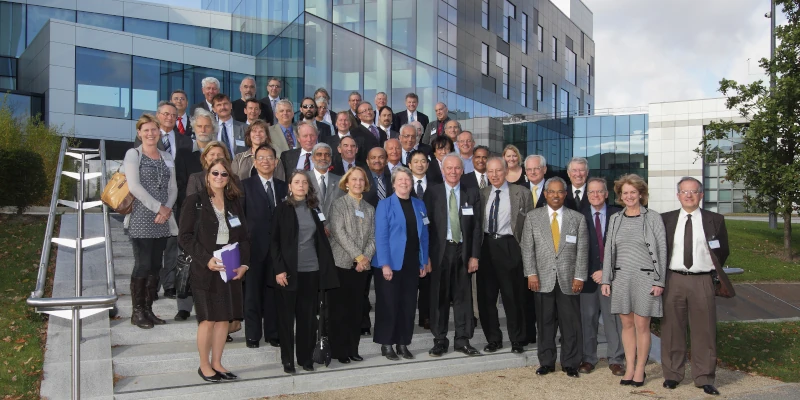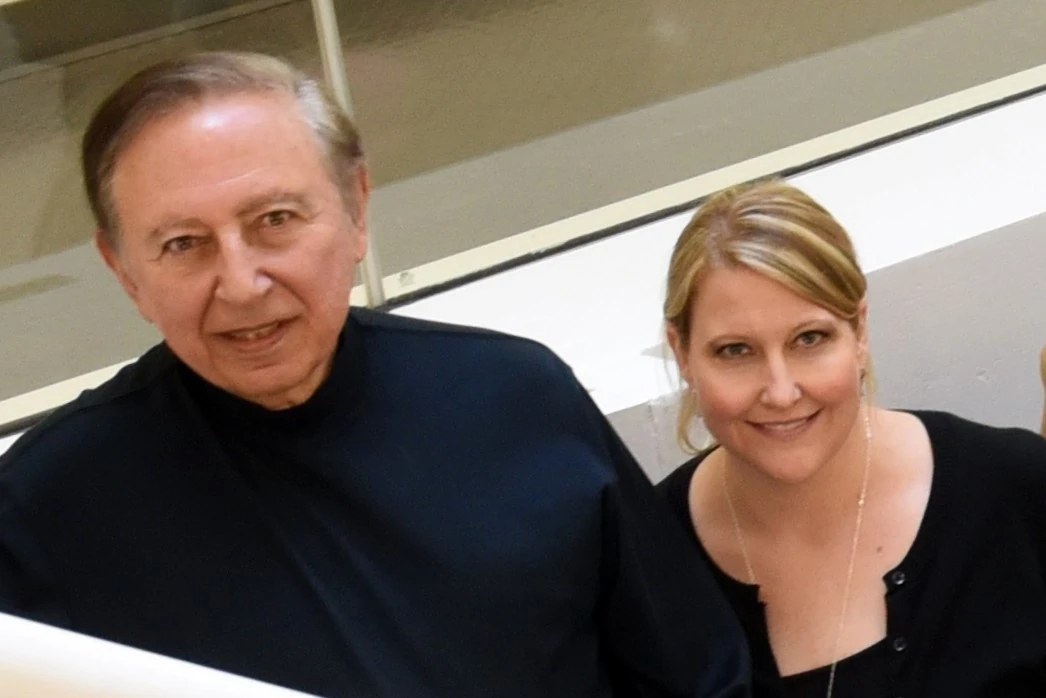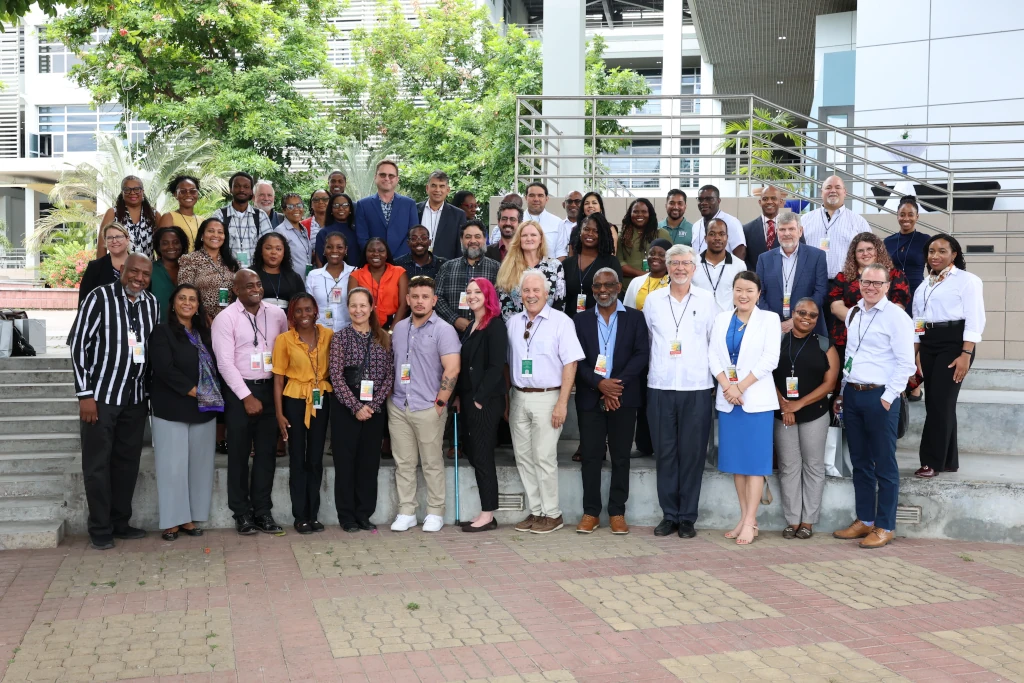Connecting Virologists: Nora Samaranayake on the Global Virus Network

The Global Virus Network (GVN) plays an essential role in connecting virologists worldwide to confront emerging and existing viral threats. As the organisation’s Senior Vice President of Marketing, Communications & Public Affairs and contributor to the co-founding of GVN, Nora Samaranayake has been central to shaping GVN’s mission and visibility from the very beginning. This article explores her career journey and shares her insights into the founding, goals, and future direction of GVN.
Early Career
Nora Samaranayake grew up in the Washington D.C. area and attended the University of Virginia, where she majored in ‘Political Science and Government’. A tragic event in her life occurred when a friend from High School was shot and killed. This loss, along with the inspiration of her mother’s work on Capitol Hill, motivated her to pursue meaningful change.  Photo: Nora Samaranayake As she put it, 'How does somebody get killed going to lacrosse practice at university? And how can we work to make change so that doesn't happen?' She began her career in Washington D.C. by working on a U.S. Senate campaign and went on to spend the next ten years working on public affairs and relations both on Capitol Hill and in the private sector.
Photo: Nora Samaranayake As she put it, 'How does somebody get killed going to lacrosse practice at university? And how can we work to make change so that doesn't happen?' She began her career in Washington D.C. by working on a U.S. Senate campaign and went on to spend the next ten years working on public affairs and relations both on Capitol Hill and in the private sector.
Founding of The Global Virus Network (GVN)
In 2008, Nora moved to Annapolis, Maryland, to work for Dr Robert Gallo in Baltimore. By 2011, Dr Gallo had begun advocating for a more connected global community of virus researchers. Virologists had long worked in isolation, separated by virus class - a critical flaw Dr Gallo witnessed firsthand during the early HIV epidemic, when a lack of collaboration delayed key discoveries. That experience shaped his vision for the Global Virus Network, which was eventually launched in 2011 to strengthen pandemic preparedness and enable fast, coordinated responses to emerging viral threats. He began shaping GVN with Nora and colleagues, including current founding Board member and Managing Executive, Mathew Evins, co-founders the late Dr Reinhard Kurth of the Robert Koch Institute and Dr William Hall of University College Dublin, and founding Board member Tim Moynahan.
As Nora recalls, 'When Dr Gallo decided to pursue this idea, there was not one leader in the field that said no to it. They were all lions in the field and already established, but they all saw the critical need and said yes to the initiative.'
GVN was created to close a critical gap in global coordination among virologists, to address the decline in early-career scientists entering the field, and to provide an apolitical, science-driven network capable of rapidly responding to viral threats across all virus classes.
Nora’s Role in GVN
Nora has been involved with GVN since its inception, contributing to early conceptualisation and strategic planning. As Senior Vice President of Marketing, Communications & Public Affairs, she leads public relations and affairs, marketing, supports strategic development, and advises leadership. Her work focuses on visibility, integration of global programmes, and expanding outreach to both general and specialised science-driven audiences.
 Photo: Dr Robert Gallo and Nora Samaranayake
Photo: Dr Robert Gallo and Nora Samaranayake
Opportunities for Researchers
Nora explains how GVN provides great opportunities for researchers through collaboration, mentorship, and knowledge exchange across virology and immunology. Early- and mid-career scientists gain access to a global network of experts and multi-institutional research initiatives that support capacity building.
Through specialised working groups and action committees, GVN fosters cross-disciplinary engagement on pressing global health challenges. It facilitates research partnerships, shares outbreak data, and supports training programmes, particularly in under-resourced regions. By connecting researchers worldwide, the network advances both scientific discovery and public health impact.
GVN also offers seed grants in research, education grants, mentorship programmes, online courses, internships, fellowships, international and regional meetings, Center of Excellence and Affiliate site support, coalitions and collaborations, virology briefings, media engagement and resources, and public webinars featuring leaders in the field.
Upcoming Research Opportunities Include:
- GVN Short Course in Translational Virology, December 3-12, 2025, In-person & Hybrid, Tampa, FL, USA – A training opportunity for early-career researchers and students, focused on practical and emerging topics in virology.
- 2026 GVN Annual International Scientific Meeting, March 4-6, 2026, Tampa, FL, USA – A global forum for presenting research, fostering collaboration, and engaging with leading experts in virology and public health.
- Forefront of Virology Webinars – A public virtual series highlighting cutting-edge research and timely topics in virology, featuring global leaders in the field.
For updates and opportunities, follow GVN on social media or subscribe to the newsletter.
 Photo: Nora (Far Left, Second Row) at the GVN Regional Meeting May 2025: Caribbean and Latin America in Jamaica
Photo: Nora (Far Left, Second Row) at the GVN Regional Meeting May 2025: Caribbean and Latin America in Jamaica
Move to the University of South Florida
GVN has entered a new chapter through its partnership with the University of South Florida (USF) in Tampa, strengthening its infrastructure and expanding its global reach. Key leaders have joined the effort, including Dr Christian Bréchot, vice chair of the GVN Board of Directors and former head of the Institut Pasteur, who leads the Microbiomes Institute at USF. Dr Robert Gallo was recruited to establish and lead the microbial oncology programme at the Tampa General Hospital (TGH) Cancer Institute, and found and direct a new virus institute at USF envisioned as the primary GVN Centre of Excellence. Additionally, Dr Sten Vermund, GVN’s Chief Medical Officer, transitioned from Yale to become Dean of USF’s College of Public Health.
Nora notes that this partnership places GVN in a vibrant academic environment, opening new opportunities for collaboration, innovation, and global health impact.
The Future of GVN
Looking ahead, GVN remains focused on strengthening pandemic preparedness through sustained investment in surveillance, research innovation, and scientific collaboration. Education, training, and data-driven global health solutions remain central to its mission.
GVN is closely monitoring declining global immunisation rates and the evolving threat of H5N1. In April, the network published recommendations in The Lancet Regional Health – Americas to help prepare for potential spread, especially given recent transmission in poultry, cattle, and other species. The call-to-action received worldwide attention. According to Nora, continued support for research, collaboration, and funding is critical to ensure global health systems remain ready for future outbreaks.
A Final Note
Nora emphasises that networks like GVN are essential in today’s world. Rooted in collaboration, evidence, and access, the GVN model offers a backbone for strengthening pandemic preparedness, health systems, and scientific innovation. Nora also highlighted the fact that the Chair of UCCRSA, Dr Rosarii Griffin, is a Board member of the GVN giving researchers a voice on the GVN Board. This connection opens up opportunities for UCC researchers to work with the GVN and benefit from its offerings.
UCC Research Staff Association
Contact us
C/O Hydraulics and Maritime Research Centre, Pouladuff Rd, Togher (UCC Internal)
